Table des matières
0. Son Excellence Monsieur. Nirmal Raj Kafle, Ambassadeur du Népal au Brésil
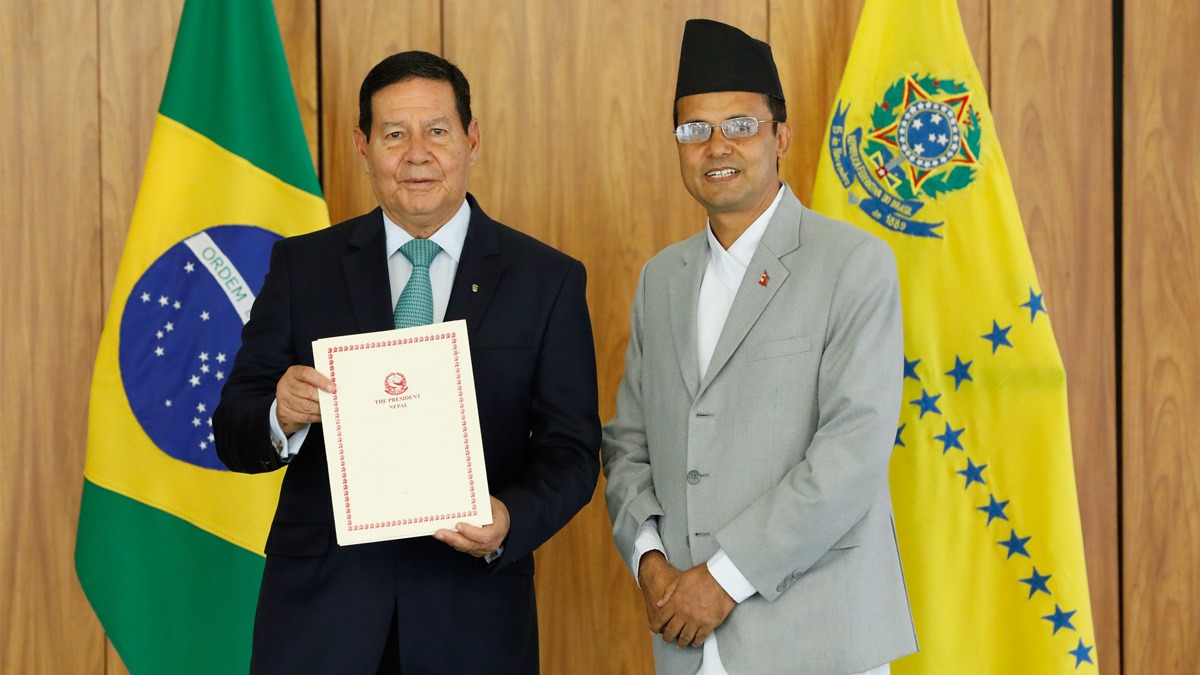
The Vice-President of Brazil Antonio Hamilton Martins and Ambassador of Nepal Nirmal Raj Kafle (2022)
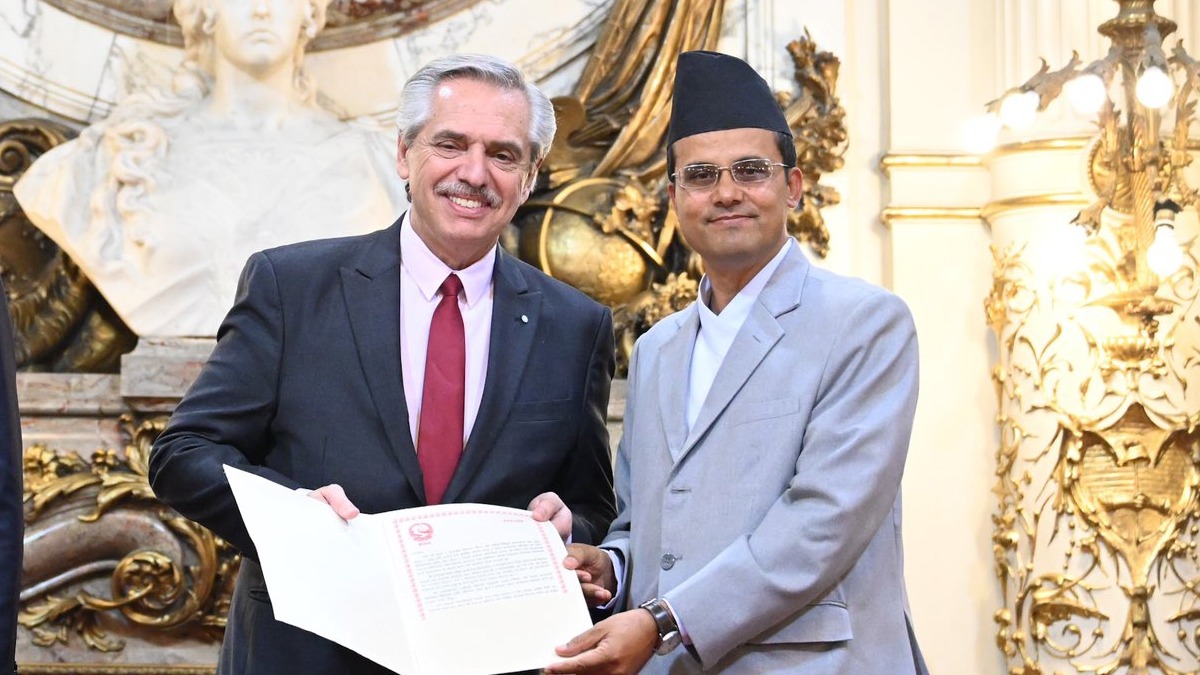
The President of Argentina Alberto Angel Fernandez and the Ambassador Nirmal Raj Kafle (2023)
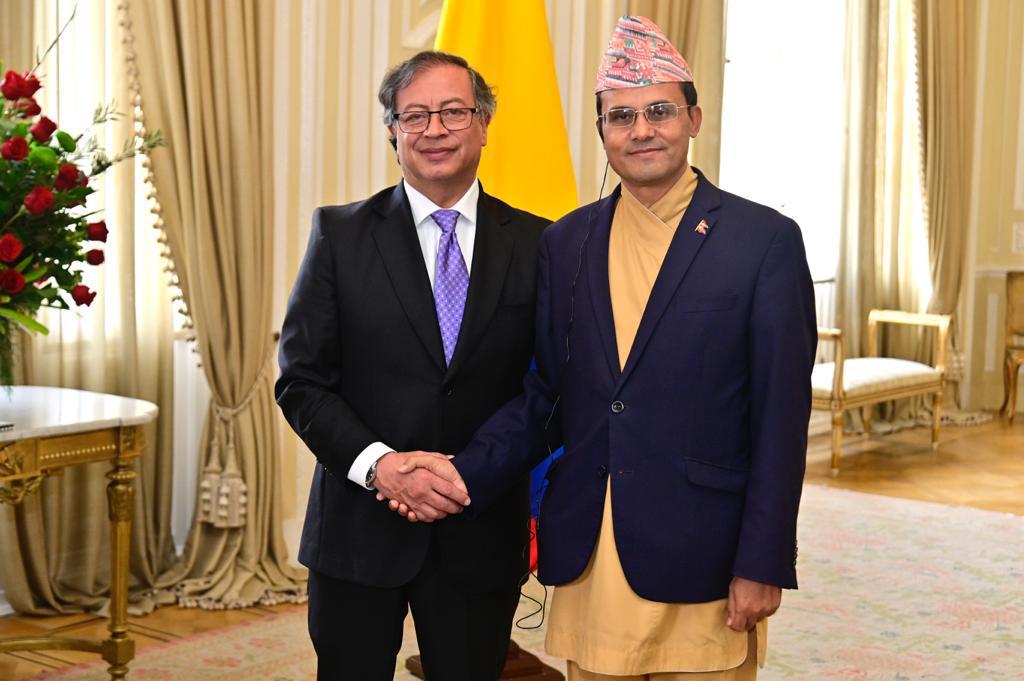
The President of Colombia Gustavo Petro with H.E. Nirmal Raj Kafle, Ambassadeur du Népal (2023)
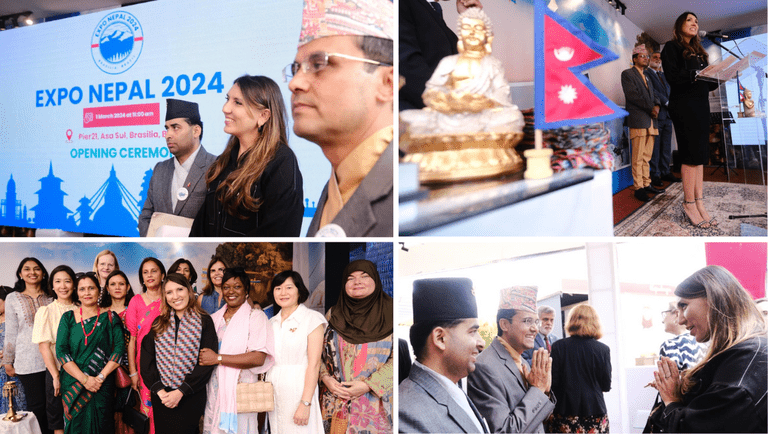
The Brazilian Ministry of Tourism Anna Carla Lopes and the Ambassador of Nepal to Brazil Nirmal Raj Kafle (2024) – Photo: Roberto Castro
1. Notre rencontre avec S.E.. l'Ambassadeur du Népal au Brésil (24/10/2023)
Le 24 octobre 2023, we were honored to be invited by His Excellency Nirmal Raj Kafle, Ambassadeur du Népal, à son domicile.
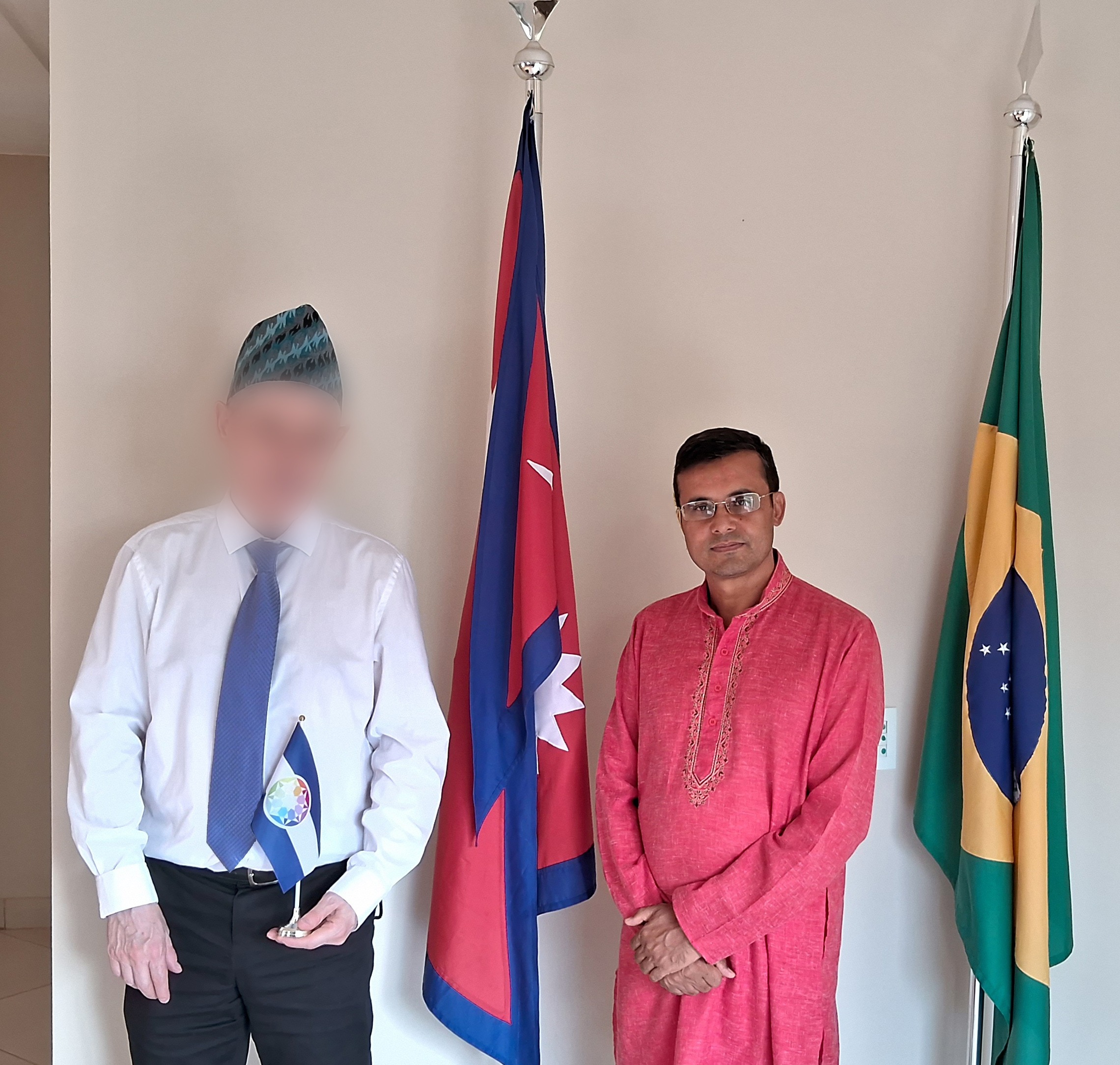
At his Residence, Son Excellence Monsieur. Nirmal Raj Kafle, l'Ambassadeur du Népal au Brésil, stands alongside the founder of the Autistan Diplomatic Organization (who prefers not to be publicly exposed) as he holds the flag of Autistan, with the official flags of Nepal and Brazil standing behind.
Being within the Residence of the Ambassador, under the jurisdiction of Nepal, we felt deeply honored by this invitation, which is why we were glad to embrace the opportunity to adorn ourselves with traditional Nepalese hats, graciously gifted to us, and partake in the celebration of Dashain, symbolized by the red markings on our foreheads.
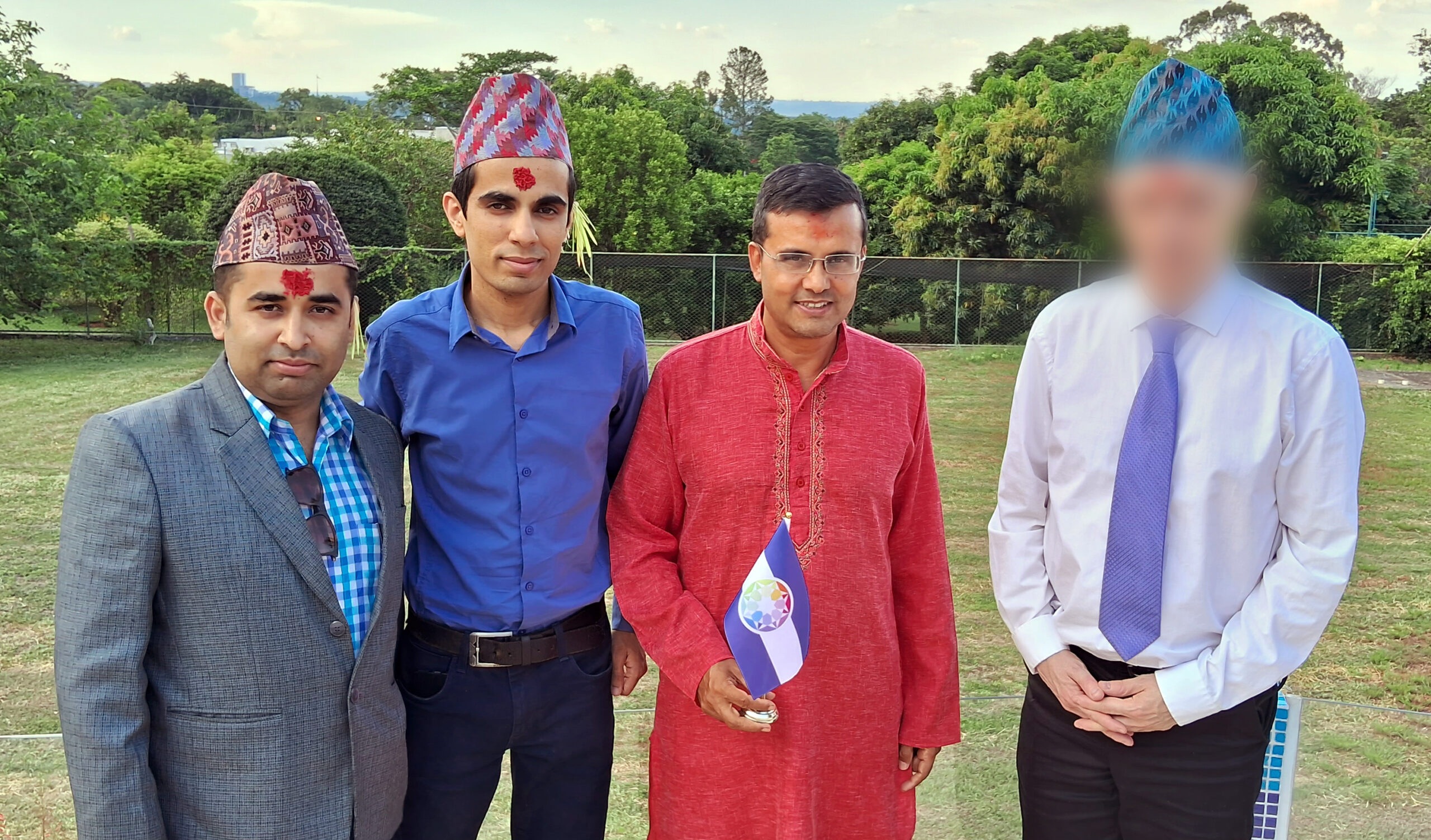
His Excellency the Ambassador of Nepal in Brasilia, showing the flag of Autistan, is accompanied by a member of the Autistan Diplomatic Organization delegation on the left (wearing a blue shirt), and by the founder of the organization on the right (wearing a blue tie, and who prefers not to be publicly exposed). The rather casual clothing reflects the less formal ambiance of the Residence of the Ambassador, fostering a relaxed atmosphere conducive to collaboration.
Our gathering extended well into the afternoon, as we were warmly welcomed to join the family of the Ambassador family and several members of the Embassy staff for lunch.
Ambassador Kafle also explained to us that although we do not represent an official country, this poses no problem because, for him, this meeting falls under the concept of ‘public diplomacy‘.
This is complementary to our approach, which aligns with ‘Diplomatie de voie II’ as explained in our previous post.
ChatGPT helps us better understand the relationship between both concepts:
Public diplomacy and Track II diplomacy are related concepts in the realm of international relations, but they serve different purposes and operate in different spheres.
Diplomatie publique:
-
-
- Public diplomacy involves efforts by governments or organizations to communicate with foreign publics in order to influence their opinions, perceptions, and attitudes towards a country or organization.
- It often involves cultural exchanges, educational programs, media outreach, and other forms of communication aimed at building relationships and fostering mutual understanding.
- Public diplomacy is typically conducted by official representatives of governments or organizations and is part of their formal diplomatic efforts.
-
Diplomatie de voie II:
-
-
- Track II diplomacy, on the other hand, involves unofficial non-governmental efforts to facilitate dialogue and problem-solving between different actors in international conflicts.
- It typically involves academics, former diplomats, experts, and other private citizens who engage in informal discussions, workshops, and conferences to address sensitive issues and explore potential solutions.
- Track II diplomacy operates independently of official government channels and is often used when official diplomatic channels are ineffective or unavailable.
-
Relation between Public Diplomacy and Track II Diplomacy:
-
- While public diplomacy and Track II diplomacy serve different purposes and operate in different spheres, they can complement each other in certain situations.
- Public diplomacy efforts can create a favorable environment for Track II diplomacy by fostering goodwill and trust between countries or communities.
- Conversely, Track II diplomacy can provide valuable insights and feedback to inform public diplomacy initiatives, helping to tailor messages and strategies to better resonate with foreign audiences.
- In some cases, public diplomacy efforts may also support Track II diplomatic initiatives by creating a more conducive environment for dialogue and cooperation between conflicting parties.
Dans l'ensemble, while public diplomacy and Track II diplomacy serve distinct functions, they can work together synergistically to advance international understanding, dialogue, and cooperation.
Our discussions were diverse, yet centered on two key points:
1.1. Initier une collaboration avec les autorités népalaises compétentes sur les questions de handicap et d'autisme
The prior email of the Nepalese Embassy expressed willingness to coordinate with relevant agencies in Nepal, setting a positive tone for our engagement.
When we reach out to embassies to address the issue of autism, notably in Brasilia, our main objective is to establish ‘human connections’, which then facilitates cooperation with the respective public authorities in the countries.
En effet, the local authorities (in the countries) remain often distant or unresponsive due to the perceived unfamiliarity of our outreach.
Cependant, our dialogue with Nepal exemplified understanding and receptiveness, paving the way for enhanced relations with the national authorities in Kathmandu.
1.2. Explorer le concept de soutien aux personnes autistes dans le monde entier grâce à des expatriés népalais formés
En plus, we delved into a less obvious topic outlined in our initial correspondence, summarized as follows by ChatGPT:
The idea suggests the establishment of an international assistance program for autistic individuals. This initiative involves hiring young men and women from Nepal to reside with and support these individuals in other countries, with appropriate compensation provided for their services.
This concept aims to capitalize on the exceptional qualities of Nepali individuals, such as adaptability, helpfulness, kindness, lack of selfishness, bravery, endurance, to provide meaningful support to autistic individuals worldwide.
The training of these helpers could be overseen or assisted by our organization to ensure consistency and relevance.
Despite an usual skepticism, the success of our initiative in Kazakhstan demonstrates the potential for tangible results.
The proposal underscores the importance of recognizing and harnessing the unique strengths of Nepali individuals to make a positive impact globally.
Excerpt from chapter « 0.4. Népal: L'un des pays les plus riches du monde, et un potentiel caché » of our previous post:
« For an autism specialist immersing themselves in Nepalese culture, une révélation remarquable se produit.
Il devient évident que the collective mindset and conduct of Nepalese society are ideally suited for supporting and caring of autistic persons.
Comme mentionné précédemment, des traits tels que l'humilité, compassion, générosité, patience, et le courage ne sont pas seulement répandus mais semblent tissés dans le tissu de la vie quotidienne.
En outre, on ne peut pas négliger les vertus de l’adaptabilité, résilience, and an innate capacity to ignore offense or selfishness. »
En substance, our proposal underscores the inherent and remarkable qualities that we see in Nepalese people in general, ideally suited for assisting autistic individuals globally.
Ambassador Kafle liked the concept, recognizing the apparent feasibility and usefulness of leveraging specialized Nepali expatriates for this purpose.
While implementation presents challenges beyond our usual scope, it warrants further consideration and study.
2. Conclusion
This meeting marks merely the beginning of our collaboration, with much work ahead of us.
Cependant, it serves as a demonstration of the power of positive attitudes, a quality often exemplified by Nepalis, as highlighted in our previous article.
It illustrates that with the right mindset, people comprehend our message, they refrain from rejecting us, and thus, seemingly insurmountable obstacles become surmountable.
We earnestly hope that other nations grasp these fundamental principles and emulate the exemplary conduct of Nepal.
